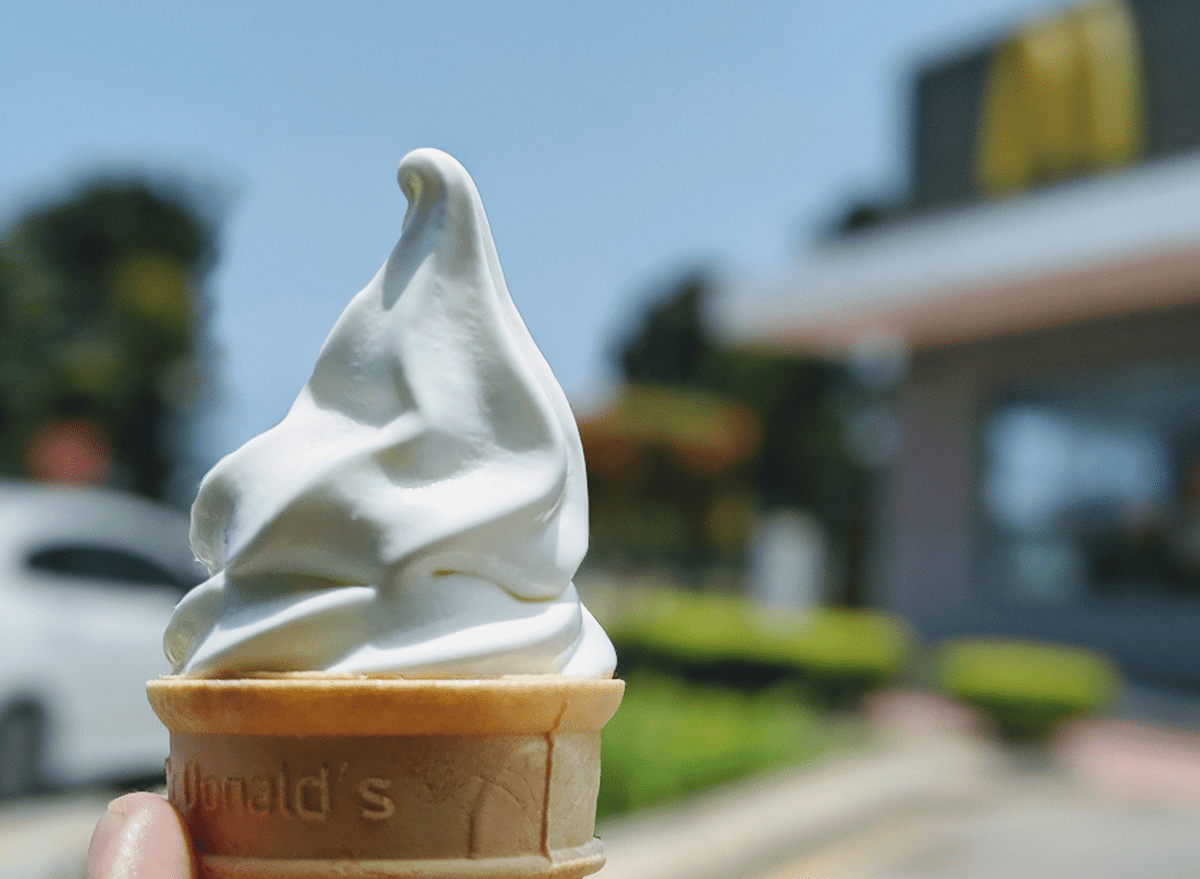McDonald's Finally Chimes In On the Toxic Ice Cream Rumor

Mickey D's soft-serve ice cream is in the spotlight once again, thanks to a rumor that's been making the rounds on social media. The buzz is that the chain's beloved dessert contains xylitol, a sugar-free sweetener often added to foods for its sweetness and lower calorie content. While stories and myths about McDonald's food are frequent and sometimes hard to believe, the xylitol story has managed to break through and pick up some real steam.
And don't miss A McDonald's Shuts Down After a Rat Infestation Is Caught On Camera.
Why all the fuss? Xylitol is known to be toxic and even deadly to dogs. A Facebook post went viral after claiming that McDonald's ice cream contains the toxic ingredient, warning pet owners not to feed their furry friends the cold treat.
Though the rumor caused temporary panic among pet owners, the claim has since been debunked. The sweetener is not listed as an ingredient in the chain's soft serve or other desserts. Currently, no evidence can be found to support that McDonald's ice cream contains xylitol, and furthermore, the company has now set the record straight. McDonald's confirmed to Indy100 that its soft-serve does not contain xylitol and that the rumors are false.
Xylitol is a sugar alcohol that The United States Food and Drug Administration (FDA) has deemed safe for human consumption but toxic to some pets, especially dogs. According to the American Society for the Prevention of Cruelty to Animals (ASPCA), xylitol is a severe threat to your pup, which can cause low blood pressure and liver damage.
Xylitol is absorbed into the bloodstream of canines faster than in humans, but symptoms may not appear until twelve hours after ingestion. This delay in the appearance of symptoms may make it difficult to realize what exactly caused your pet's illness.
Xylitol is often found in breath mints, chewing gum, and toothpaste, and the American Dental Association has recognized it as beneficial for oral health. It is also found naturally in fruits and vegetables. Its chemical structure is similar to sugar, but it contains fewer calories and is very sweet.
However, if you do have a suspicion that your pet has ingested xylitol, call your vet, emergency clinic, or animal poison control center right away.









